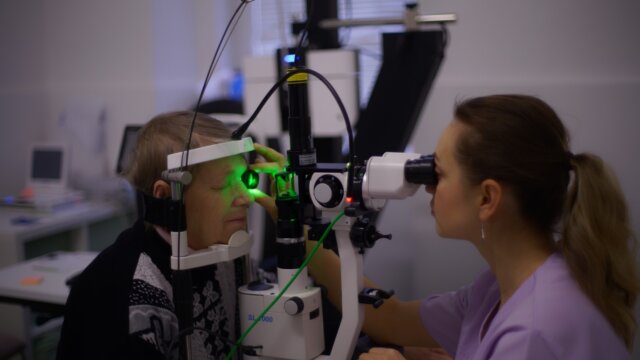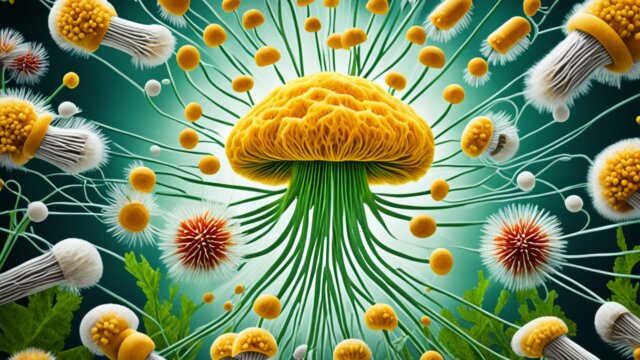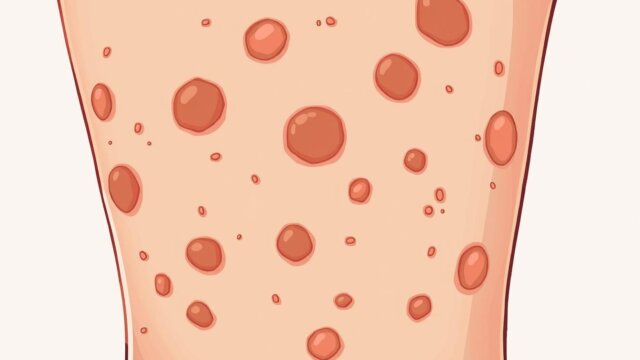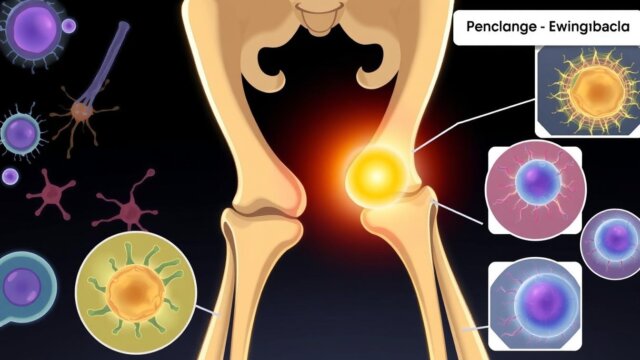FTC disclaimer: This post may contains affiliate links and we will be compensated if you click on a link and make a purchase.
L-Arginine is a natural amino acid found in meat and dairy foods. This supplement has become very popular because it helps improve sexual performance.
What exactly does l-arginine do? Is it safe? How much should I take?
L-Arginine is a naturally occurring amino acid in food such as beef, chicken, fish, milk, eggs, soybeans, nuts, seeds, and vegetables. The body uses arginine to produce nitric oxide (NO), which relaxes blood vessels and increases blood flow during sex.
Although some studies suggest that taking too much L-Arginine can cause side effects, other research shows that it can also increase testosterone levels and boost energy.
Moreover, L-Arginine supports cardiovascular health. Studies show that taking l-arginine supplements improves blood vessel dilation, reduces cholesterol levels, and increases nitric oxide production.
In addition, several clinical trials show that men who took arginine supplements experienced improved erectile function.
What is L-arginine
L-arginine is an amino acid that helps to maintain and build muscle tissue. It also supports the immune system and is necessary for the body to produce nitric oxide, which helps to relax blood vessels and improve blood flow.
L-arginine is found in foods such as meat, poultry, fish, and nuts and is also available in supplement form.
What is L-arginine used for?
L-arginine is an amino acid found in all living cells’ proteins. It is classified as a semi-essential amino acid, which means that while the body can produce small amounts of it, it still needs to obtain it from the diet to maintain health.
L-arginine is involved in many important biochemical processes in the body, making it a vital nutrient for good health.
One of the most important roles of L-arginine is as a precursor for nitric oxide production. Nitric oxide is a molecule that plays a critical role in many biological processes, including vasodilation, neurotransmission, and immune function.
L-arginine is converted into nitric oxide in the body, making it essential for maintaining normal nitric oxide levels.
Nitric oxide is vital for vasodilation, the widening of blood vessels. This process is essential for proper blood circulation and blood pressure.
L-arginine effectively treats and prevents many cardiovascular conditions, such as hypertension, heart attacks, and stroke.
L-arginine is also involved in neurotransmission, the process by which nerve cells communicate with each other. It is necessary for the proper function of the nervous system.
L-arginine effectively treats many neurological conditions, such as Alzheimer’s disease, Parkinson’s disease, and multiple sclerosis.
Finally, L-arginine is also involved in immune function. It is necessary for the proper development and function of immune cells. L-arginine effectively treats several immune-related conditions, such as allergies, asthma, and arthritis.
As you can see, L-arginine is a vital nutrient for good health. It is involved in many critical biochemical processes in the body. If you are not getting enough L-arginine in your diet, you may be at risk for many health problems.
What are the Health Benefits of L-Arginine?
L-Arginine is an amino acid commonly found in red meat, poultry, and fish. It is also found in some dairy products and nuts. L-Arginine is a semi-essential amino acid, which means that while our bodies can produce it, we still need to get it from our diet.
L-Arginine has many health benefits, including:
1. Improving blood circulation
L-Arginine helps to dilate blood vessels, which can improve blood circulation. This can be beneficial for people with conditions like atherosclerosis, where narrowing of the blood vessels can lead to decreased blood flow.
2. Treating erectile dysfunction
L-Arginine is effective in treating erectile dysfunction. It works by increasing nitric oxide levels, which relaxes the blood vessels and allows for increased blood flow to the penis.
3. Boosting exercise performance
L-Arginine can also help to improve exercise performance. It does this by increasing nitric oxide levels, improving blood flow and oxygen delivery to the muscles.
4. Enhancing wound healing
L-Arginine can also help to speed up the healing of wounds. This is because it helps increase blood flow to the area, which delivers nutrients and oxygen necessary for healing.
5. Reducing inflammation
L-Arginine can also help to reduce inflammation. This is because it helps to reduce the production of pro-inflammatory compounds.
6. Boosting immune function
L-Arginine can also help to boost the immune system. This is because it helps to increase the production of immune cells, such as lymphocytes and macrophages.
7. Aiding in weight loss
L-Arginine can also help with weight loss. This is because it can help to increase metabolism and reduce appetite.
8. Treating arthritis
L-Arginine can also help to treat arthritis. This is because it can help to reduce inflammation and pain.
9. Improving cognitive function
L-Arginine can also help to improve cognitive function. This is because it can help increase blood flow to the brain, improving brain function.
10. Reducing the risk of heart disease
L-Arginine can also help to reduce the risk of heart disease. This is because it can help to lower blood pressure and improve blood vessel function.
L-arginine benefits for males
It’s no secret that L-arginine is one of the most popular amino acids on the market today. L-arginine is known for its ability to improve blood flow and help with erectile dysfunction. But did you know that L-arginine can offer many other benefits for males?
For one, L-arginine can help increase sperm count and motility. In a study of 30 men with low sperm counts, L-arginine supplementation increased sperm count by 54% and motility by 64%.
Moreover, L-arginine has also been shown to improve fertility in men with low sperm counts. In one study, L-arginine supplementation resulted in a significant increase in pregnancy rates.
In addition to its reproductive benefits, L-arginine can also help boost muscle growth. Twenty-six men showed that L-arginine supplementation increased muscle mass and strength.
What’s more, L-arginine has also been shown to improve exercise performance. In one study, L-arginine supplementation significantly increased VO2 max (a measure of aerobic fitness).
So, if you’re looking for a way to boost your fertility, muscle growth, or exercise performance, L-arginine may be the answer.
L-arginine benefits for females
L-arginine is an amino acid commonly taken as a supplement for its many potential health benefits. It has improved blood circulation, boosted nitric oxide production, and enhanced sexual function.
Recent studies have also suggested that L-arginine may positively affect female fertility. One study found that L-arginine supplementation improved egg quality in women with poor ovarian reserve.
In addition, L-arginine has been shown to improve blood flow to the uterus and increase progesterone levels in women with luteal phase defects. This suggests that L-arginine may benefit women with difficulty conceiving or recurrent miscarriages.
L-arginine may also help relieve some menopausal symptoms. One study found that L-arginine supplementation reduced hot flashes and night sweats in menopausal women.
Overall, L-arginine appears to be a safe and effective supplement with numerous potential health benefits for women. If you are considering taking L-arginine, speak with your doctor to ensure it is safe.
Possible Side Effects of L-arginine
L-arginine is often marketed as a natural way to improve exercise performance and increase muscle mass. However, like all supplements, there is the potential for side effects. Here is what you need to know about the potential side effects of L-arginine.
The most common side effect of L-arginine is gastrointestinal distress. This can include bloating, gas, diarrhea, and abdominal pain. Taking L-arginine on an empty stomach may exacerbate these symptoms.
It is important to drink plenty of water when taking L-arginine and to start with a lower dose if you are new to the supplement.
Other common side effects of L-arginine include headache, dizziness, and nausea. These side effects are typically mild and resolve on their own. If you experience these side effects, stop taking the supplement, and they should go away.
Serious side effects of L-arginine are rare, but they can occur. These include chest pain, irregular heartbeat, and difficulty breathing. If you experience these side effects, stop taking L-arginine and seek medical attention immediately.
L-arginine is generally considered safe for most people. However, some people should not take the supplement. These include people with heart conditions, high blood pressure, kidney disease, and pregnant or nursing women.
If you have concerns about taking L-arginine, speak to your doctor before starting the supplement.
L-Arginine-Rich Foods You Should Be Eating

To boost your nitric oxide levels, you must ensure you eat foods rich in L-arginine. This essential amino acid plays a crucial role in nitric oxide production, which can improve blood flow and help deliver more oxygen and nutrients to your muscles. Not sure which foods to eat?
Here are some of the best L-arginine-rich foods to add to your diet:
1. Watermelon
This refreshing fruit is not only rich in L-arginine but also citrulline. Citrulline is another amino acid that’s converted into L-arginine in the body.
Watermelon is also a good source of electrolytes, which can help you stay hydrated and prevent cramping during exercise.
2. Nuts and Seeds
Nuts and seeds are excellent sources of L-arginine and other essential nutrients like healthy fats, protein, vitamins, and minerals.
Some of the best nuts and seeds for L-arginine include pumpkin, pistachios, sunflower, and flaxseeds.
3. Fish
Fish is another excellent source of protein and L-arginine. Salmon, tuna, halibut, and trout are all great options. Not a fan of fish? You can also get L-arginine from other seafood like shrimp, scallops, and crab.
4. Beans and Lentils
Beans and lentils are excellent plant-based sources of L-arginine. They’re also high in fiber and other nutrients like iron and folate. Some of the best beans and lentils for L-arginine include black beans, kidney beans, lentils, and chickpeas.
5. Spirulina
spirulina is a type of algae that’s rich in protein, vitamins, and minerals, including L-arginine. Spirulina is often sold in powder form and can be added to smoothies or other beverages.
6. Meat
Meat is another excellent source of protein and L-arginine. Beef, chicken, pork, and lamb are all good options. If you’re looking for leaner meat, turkey and rabbit are also good choices.
7. Dairy
Dairy products like milk, cheese, and yogurt are also good sources of L-arginine. Greek yogurt is a particularly good option, as it’s also high in protein.
8. Eggs
Eggs are another great source of protein and L-arginine. They’re also a good source of vitamins and minerals like vitamin D and choline.
Whether you get your L-arginine from food or supplements, ensure you get enough of this important amino acid to boost nitric oxide production and improve your overall health.
How to Choose L-arginine Supplements?
If you are looking for an L-arginine supplement, you are probably wondering what the best options are.
L-arginine is an amino acid often taken as a supplement to improve heart health, circulation, and blood pressure. It is also sometimes taken to boost exercise performance and to enhance sexual function.
L-arginine supplements are available in various forms, including capsules, tablets, powders, and liquids. The best L-arginine supplement for you will depend on your individual needs and preferences.
Here are some things to consider when choosing an L-arginine supplement.
When choosing an L-arginine supplement, the first thing to consider is what form you want to take it in. Capsules and tablets are the most convenient options, but powders and liquids may be more effective.
If you are taking L-arginine for heart health, choosing a product with a high concentration of L-arginine is important. For exercise performance and sexual function, a lower concentration may be sufficient.
It is also important to consider the other ingredients in the supplement. Some L-arginine supplements also contain other amino acids, vitamins, and minerals that can be beneficial.
However, some of these ingredients may not be necessary or desirable for everyone. For example, some people may not want to take a caffeine supplement. Others may prefer a vegetarian or vegan product.
When choosing an L-arginine supplement, it is also important to consider the price. L-arginine supplements are available at a wide range of prices, from a few dollars to over one hundred dollars.
Finding an affordable product with the ingredients you need is important.
Finally, reading the label of the L-arginine supplement you are considering is also essential. The label should list the amount of L-arginine and other ingredients in the product.
It is also important to ensure the supplement is manufactured in a GMP-certified facility. This ensures that the supplement is of high quality and has been made according to strict standards.
There is no one-size-fits-all answer to finding the best L-arginine supplement. The best supplement for you will depend on your individual needs and preferences.
However, by considering the above factors, you can narrow down your options and find a product that is right for you.
L-arginine Dosage Guideline
Many factors affect the L-arginine dosage amount that is right for you. Age, weight, and medical conditions are a few of these variables.
According to research, the typical L-arginine dosage is between 2 and 6 grams per day. But, the amount that is right for you may be different.
Your doctor can help you determine the L-arginine dosage best for you. They will consider your age, weight, and medical conditions.
They will also look at the other medications you take. This is because some drugs can interact with L-arginine. These interactions can make the supplements ineffective or even dangerous.
For example, if you take blood pressure medication, you should not take L-arginine. This is because L-arginine can lower blood pressure. Moreover, this can be dangerous if your blood pressure is already low.
If you have any other medical conditions, be sure to talk to your doctor before you start taking L-arginine supplements.
They will help you figure out if the supplements are safe for you to take. And they can help you determine the right L-arginine dosage for your needs.
L-arginine Vs. L-citrulline
L-arginine and L-citrulline are two amino acids often used for their potential health benefits.
They are both found in supplements and are thought to improve exercise performance, increase nitric oxide levels, support cardiovascular health, and treat erectile dysfunction.
However, there are some key differences between the two amino acids.
L-arginine
L-arginine is an amino acid in red meat, poultry, and fish. It is also found in some dairy products but smaller amounts.
L-arginine is a semi-essential amino acid, which means our bodies can produce it, but sometimes we need to get it from our diet. L-arginine is important for many bodily functions, but it is especially important for cardiovascular health.
L-citrulline
L-citrulline is an amino acid that is found in watermelons. It is also found in other fruits and vegetables but in smaller amounts.
L-citrulline is a non-essential amino acid, meaning our bodies can produce it, and we don’t need to get it from our diet. L-citrulline is also important for many different bodily functions, but it is especially important for cardiovascular health.
Key differences between L-arginine and L-citrulline
So, what are the key differences between these two amino acids?
The first difference is in their structure. L-arginine is a linear amino acid, while L-citrulline is a cyclic amino acid. This means that L-citrulline can better cross the blood-brain barrier, which is important for brain function.
The second difference is in their absorption. L-arginine is absorbed better when taken on an empty stomach, while L-citrulline is absorbed better when taken with food.
The third difference is in their half-lives. L-arginine has a shorter half-life than L-citrulline, which means it is cleared from the body more quickly.
L-citrulline is more effective at increasing nitric oxide levels than L-arginine, which may improve exercise performance and treat erectile dysfunction.
Another difference between L-arginine and L-citrulline is that L-citrulline is more effective at treating erectile dysfunction than L-arginine.
Erectile dysfunction is a condition that affects a man’s ability to get and maintain an erection. L-citrulline is more effective at treating erectile dysfunction than L-arginine, which means that it may be more effective at treating the condition.
So, what does all of this mean for you?
Suppose you are looking for a way to improve your cardiovascular health, treat erectile dysfunction, and boost exercise performance. In that case, you may consider taking a supplement containing both L-arginine and L-citrulline.
These amino acids have different benefits, but they both are effective for cardiovascular health.
Conclusion
L-arginine is a safe and effective supplement with many benefits. It is important to consult with a healthcare professional before starting any supplement, especially if you have a medical condition.
The recommended dosage is 2-6 grams per day. L-arginine is found in many food sources, such as meat, poultry, fish, and nuts.








